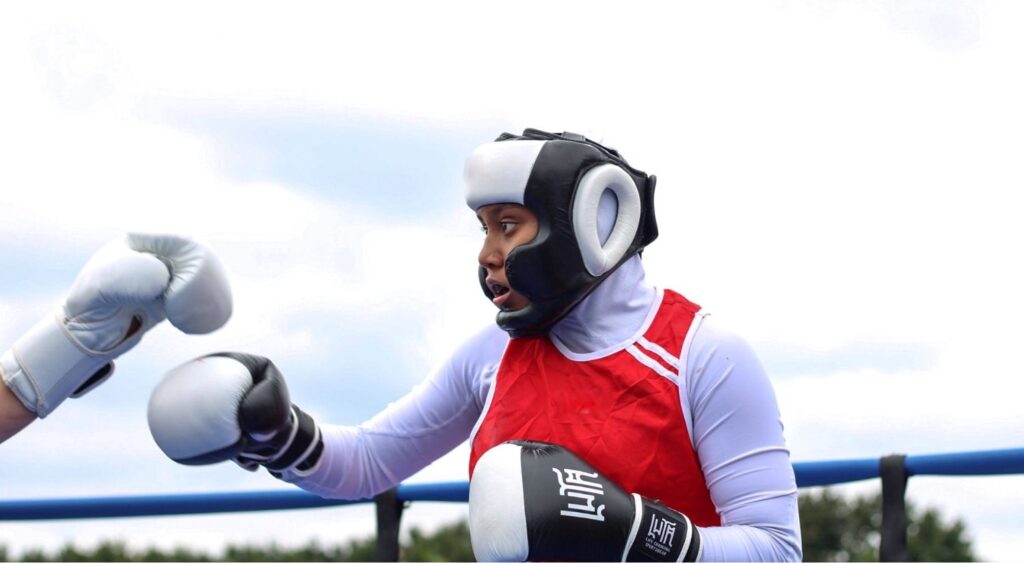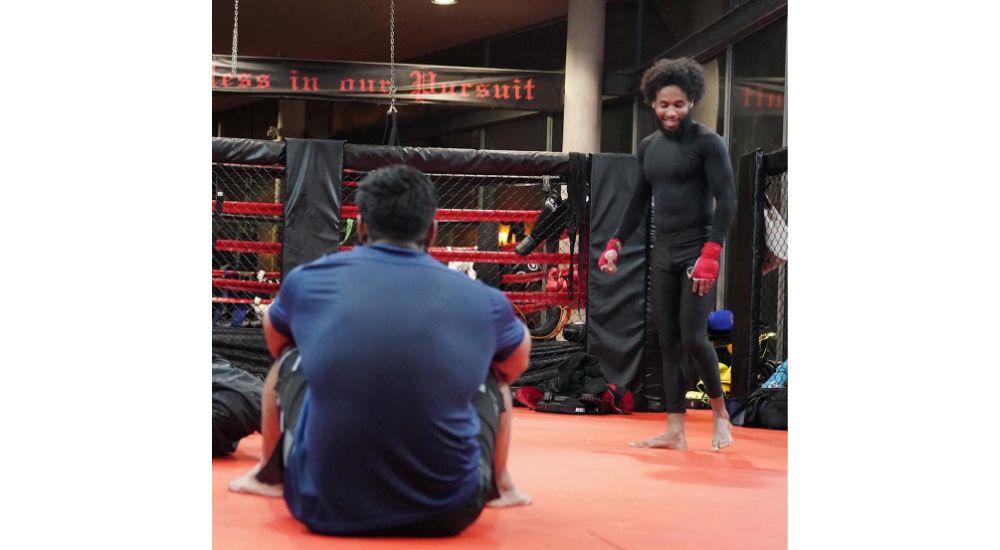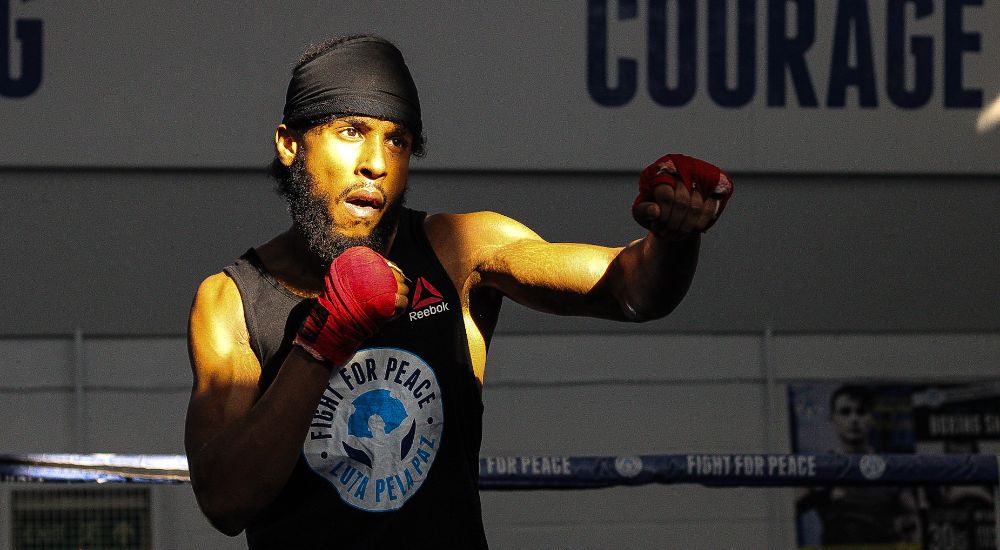Many Muslims worldwide have been observing Ramadan – the annual holy month which marks the ninth month of the Islamic calendar. Ramadan is a special period of fasting, prayer, reflection, community, family, and much more.
The Ramadan period lasts around 30 days, and observers dry fast from sunrise to sunset. The end of Ramadan is marked by a religious festival called Eid, with celebrations taking place all over the world.
At Fight for Peace, we work among many young people and staff members of Islamic faith from all different backgrounds and walks of life. So we wanted to find out more about the holy month of Ramadan, and what it takes to persevere through training in boxing and martial arts during this time.
We caught up with Athena and Sabir, and it was a pleasure to gain some of their insight of what Ramadan means to them, and how they maintain balance between fasting, training, and spending time with family and faith.
Athena and Sabir were previously both long-time Fight for Peace members, and are now staff members. Sabir is Project Officer for our ACT-AS-1 Collective, and Athena is a Youth Worker and a coach for our Twilights sessions which combine fitness, boxing and personal development for young people aged 7-14. They are also both dedicated athletes, with Sabir competing in mixed martial arts, and Athena competing in both muay thai and boxing.

As athletes who have decided to keep training as part of their Ramadan routine, a few adjustments have been made for them to be able to continue training consistently, and safely.
So, what does Sabir’s Ramadan training routine look like? And does it differ from his normal routine?
“Currently, I train twice a day. We break our fast at 8pm, so I train at 5pm and finish around 6.30 or 7pm, then I head home to get ready to eat and relax a little and then I’m back in the gym by around 10.30 for my second session,” Sabir explained.
“At first it was just me and one of my friends, and other brothers were out fasting too and before we knew it, about 15-20 people joined us. Sometimes we train together until around 2am.”

This undeniable dedication to remaining consistent can also bring its challenges, and being adaptable is a quality that can help get through and make things more manageable.
“For me, one of the challenges during Ramadan is my lack of sleep,” Sabir told us.
“Sometimes I leave the gym at 2 or 3am, and I’ll be in bed by 4. Then it’s back to work in the morning. So when I can move my schedule around to get some extra sleep before training, I do,” he continued.
So what is it that keeps Sabir motivated and inspired to keep going during this period of fasting, especially with the effects of little sleep?
“I spend most of my day with Muslims and brothers, so we pray together a lot. It’s those moments I feel are key, it’s special for all of us to come together to pray,” said Sabir.

The power of praying together and having a space to reflect before and after training provides a strong sense of community. Sharing experiences like this collectively can have a great impact on the ability to power through.
“I also have to remember that life goes on after Ramadan. Once it’s over, I try not to be in the worst shape possible,” he explained.
So what about Athena? Who takes a slightly different approach to Sabir, and prefers training earlier in the day than in the evenings.
“For the month of Ramadan, I sacrifice some training sessions. Personally, I don’t mind doing my training earlier in the day so that I can spend evenings with my family and help my mum prepare for breaking fast,” Athena told us.
It’s interesting to hear the different approaches taken by Athena and Sabir, highlighting that there are many ways to work around Ramadan and training.
Athena also explained that in Islamic faith, the hours between sunset and sunrise is the period when God listens more, so this time is very special; not just in Ramadan but in general day-to-day life.
“Your prayers are more accepted at night. There are a lot of prayers we can do before sunrise, but after sunset is when you find tranquillity – when you are alone,” she explained.
“If I choose to train at night, I find that it reduces the amount of time I could be connecting with my religion. I feel better doing it in the daytime,” Athena continued.
So what advice would Athena and Sabir give to somebody observing Ramadan who may be worried about training while fasting?
“I’d tell them not to overdo it. Make sure you spend time practising your faith and spending time with your family. Don’t get too down if you don’t feel like you’re training as much because there’s a time and a place for everything.This month, spend time with your family and your faith, then when Ramadan is over you can keep going. There’s more time to develop. Just remember this is your period of bigger purpose,” explained Sabir.
“I’d tell them not to feel bad about it at all because everyone is different. Try and find a time that you feel will be beneficial, just before breaking fast maybe. Knowing that you’re going to break it after you’re done might feel good, or after breaking fast,” said Athena.
“It’s also important to know your body. Make sure you eat the right foods so you have the energy to do certain things throughout the day. If you know you’re training in the evening, don’t eat too much when you break fast. And for anyone who isn’t used to training in Ramadan and wants to try training in the day, try one day, see how it feels and go from there. Take it easy.”
Massive thank you to Athena and Sabir for giving some of their valuable insight and experience. Ramadan Mubarak to all who are observing, and wishing everybody a wonderful Eid!
